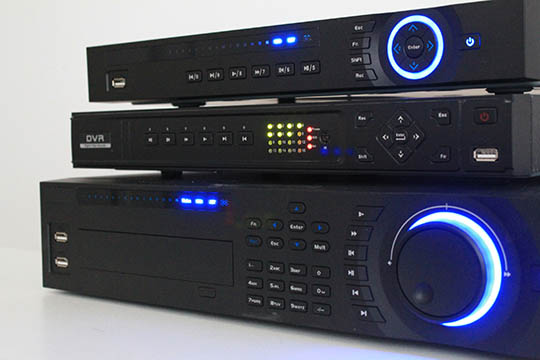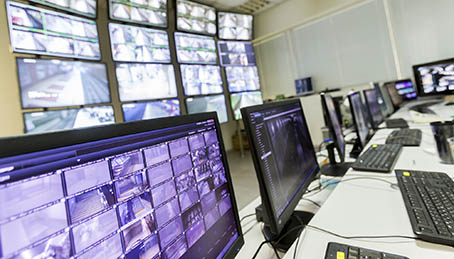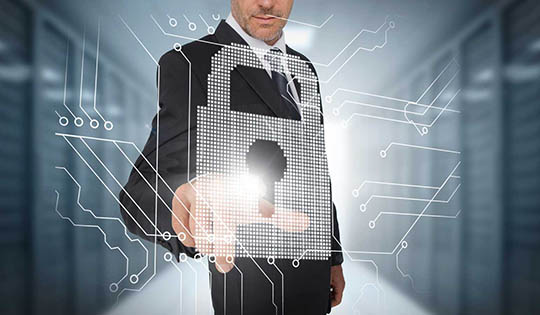NVR / VMS / DVR Solutions

We understand (and strongly agree) that different businesses have distinct needs when it comes to video surveillance. At a basic level, a networked video recorder (NVR) is a hard-drive based system responsible for detecting motion and storing the video from the cameras. A video management system (VMS) is the software that catalogs the video recorded by the NVR and makes it quick and easy to access from your computer or even a mobile device.
We will work with you to find a quality system that will meet your needs and have room for your planned future growth. 24HRS Network has done systems smaller systems for single-location businesses and financial institutions, such as banks, which have regulatory compliance requirements all the way up to large communities with multiple night-vision outdoor cameras at locations spread out over miles.
Alarm Monitoring
24HRS Network is partnered with one of the largest and most reliable nationwide commerical alarm monitoring providers. As a licensed installer and certified partner our partnership affords lifelong monitoring discounts to the customers we install systems for.
Whether you need basic entry monitoring, specialized monitoring, business automation, or full video surveillance monitoring we've got your business covered 24/7/365.
TX LIC B18239

Monitoring Levels
| Basic | Silver | Gold | Platinum | |
|---|---|---|---|---|
| 24-Hour Dispatch | ||||
| Insurance Discounts | ||||
| Risk-Free Setup | ||||
| No Hidden Fees | ||||
| Nationwide Service | ||||
| Free Tech-Support | ||||
| Door Sensors | ||||
| Motion Sensors | ||||
| Smoke / Heat | ||||
| Carbon Monoxide | ||||
| Tamper Sensors (Time-Lock Safe) |
||||
| Glass Break Sensors | ||||
| Business Automation (HVAC, Lights, Etc) |
||||
| Mobile Apps | ||||
| Video Surveillance | ||||
| Specialized Sensors (Floor Pressure, Halon) |
||||
| Call 713.568.8979 pricing details | ||||
